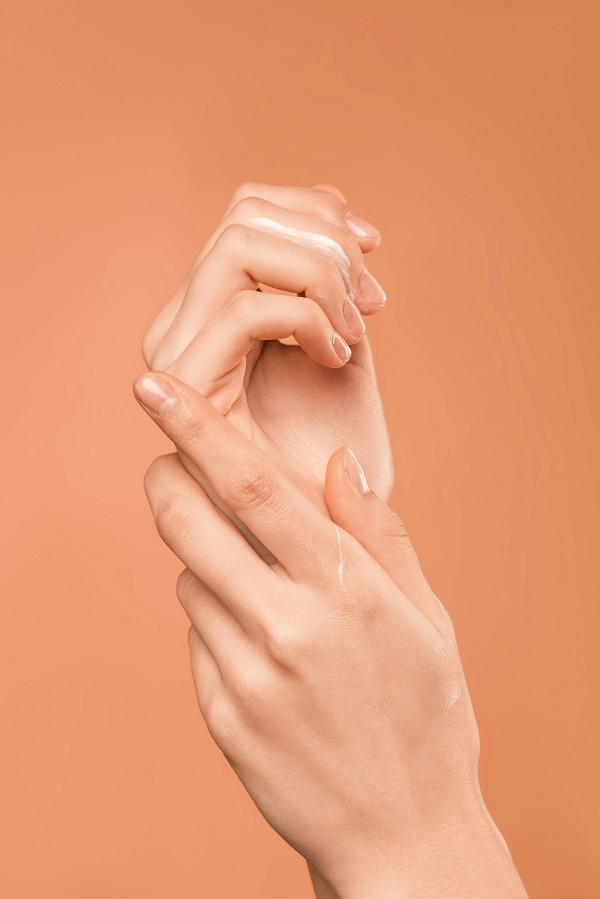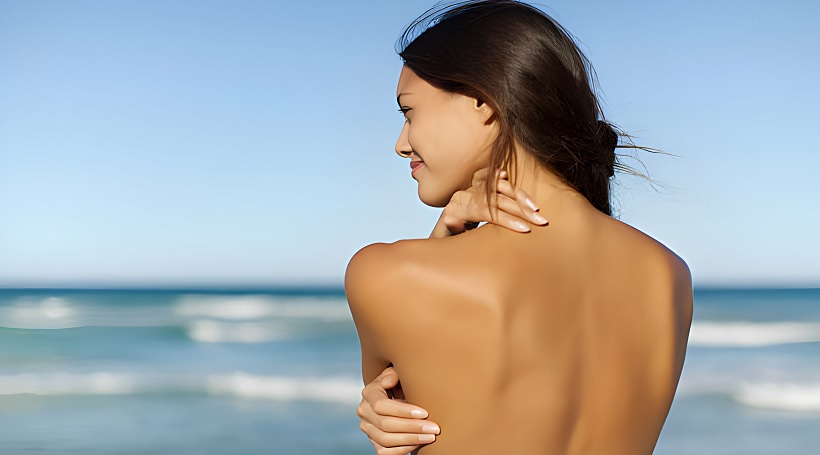Last Updated on January 1, 2025
Yes, baby oil can help you tan by increasing UV radiation absorption on the skin. However, it also raises the risk of sunburn and skin damage, making it a less safe option for tanning compared to alternatives like sunscreen or self-tanning products.
The practice of using baby oil to enhance tanning has been a subject of considerable debate over the years. While some advocate for its effectiveness in achieving a deeper tan more quickly, others warn against potential risks and advocate for safer tanning methods. This comprehensive guide to the mechanics of tanning examines the role of baby oil in the tanning process and discusses its benefits and drawbacks, ultimately providing a well-rounded view of whether baby oil truly helps in achieving a tan.

The Tanning Process
To evaluate the effectiveness and safety of using baby oil for tanning, it’s essential to first understand how tanning occurs. Tanning is the skin’s natural response to ultraviolet (UV) radiation from the sun or artificial sources like tanning beds. When skin is exposed to UV radiation, it triggers the production of melanin, a pigment that absorbs and disperses UV rays to protect skin cells from damage. This process not only results in darker skin but also can contribute to premature skin aging and increase the risk of skin cancer.
Read More – 10 Best Beach Bags for Moms In 2024, As Per Expert
The Role of Baby Oil in Tanning
Baby oil is a mineral oil-based product that is often used for moisturizing the skin. Its proponents believe that applying baby oil can enhance the tanning process by intensifying UV radiation absorption. Here’s a closer look at the claims and the science behind them:
Increased UV Radiation Absorption
The primary argument for using baby oil for tanning is that its reflective properties can focus sunlight on the skin, potentially speeding up the melanin production process. However, this increased absorption of UV rays raises concerns about skin damage and the heightened risk of sunburn.
Moisturizing Effects
Baby oil is known for its moisturizing benefits, and hydrated skin can indeed appear healthier and may tan more evenly. However, the presence of baby oil on the skin when exposed to intense sunlight can lead to excessive drying and damage, negating the hydrating benefits.
Benefits of Using Baby Oil for Tanning
- Faster Tanning: Some users report achieving a deeper tan more quickly when using baby oil.
- Hydration: Initially, baby oil can make the skin appear more supple and glowing.
Risks and Drawbacks
- Increased Risk of Sunburn: By enhancing UV radiation absorption, baby oil can significantly increase the risk of sunburn, which is a major risk factor for skin cancer.
- Skin Damage: The accelerated tanning process can lead to premature skin aging, including wrinkles, leathery skin, and age spots.
- Heightened Risk of Skin Cancer: The most serious concern is the potential increase in the risk of melanoma and other skin cancers due to heightened UV exposure.
Read More – Can You Use Baby Oil As Lube? A Comprehensive Analysis
Safer Tanning Alternatives
Given the risks associated with using baby oil for tanning, it’s prudent to consider safer alternatives:
- Sunscreen: Using a broad-spectrum sunscreen with an appropriate SPF can protect the skin from harmful UV rays while still allowing for a gradual tan.
- Self-tanning Products: These products can provide a tanned appearance without the risks associated with UV exposure.
- Protective Clothing: Wearing hats, sunglasses, and UV-protective clothing can shield the skin from excessive sun exposure.

Read More – When Do Babies Sleep 7Pm To 7Am?
FAQs
Does baby oil help you tan?
Yes, baby oil can help you tan by increasing UV radiation absorption on the skin. However, it also raises the risk of sunburn and skin damage, making it a less safe option for tanning compared to alternatives like sunscreen or self-tanning products.
Does baby oil make you tan darker?
Applying baby oil may result in a darker tan because it intensifies the UV rays’ effect on the skin. This method accelerates melanin production, leading to a deeper tan. Yet, this comes with increased risks of sunburn and long-term skin damage.
What is the best oil for tanning?
The best oil for tanning is one that contains natural ingredients and offers some SPF protection, like carrot seed oil or coconut oil. These oils can help moisturize the skin while providing a barrier against harmful UV rays, unlike baby oil which offers no protection.
Is baby oil better than tanning lotion?
Baby oil is not better than tanning lotion for achieving a safe tan. Tanning lotions often contain SPF and nutrients that protect and nourish the skin, whereas baby oil can increase the risk of sunburn and skin damage without offering any sun protection.
Is baby oil good for removing tan?
Baby oil is not specifically formulated to remove tan. It’s primarily a moisturizer and can sometimes help in evening out skin tone by softening the skin. However, exfoliating products or tan removal creams are more effective for removing unwanted tan.
Conclusion
While baby oil may expedite the tanning process by increasing the skin’s absorption of UV rays, the associated risks far outweigh the benefits. The potential for serious skin damage, including an increased risk of skin cancer, calls for caution. Individuals seeking a tanned appearance are encouraged to explore safer alternatives that do not compromise skin health. Protecting the skin from excessive UV exposure should always be a priority, and any method that heightens the risk of sun damage should be approached with skepticism. The allure of a quick tan is not worth the long-term consequences to skin health and overall well-being.

